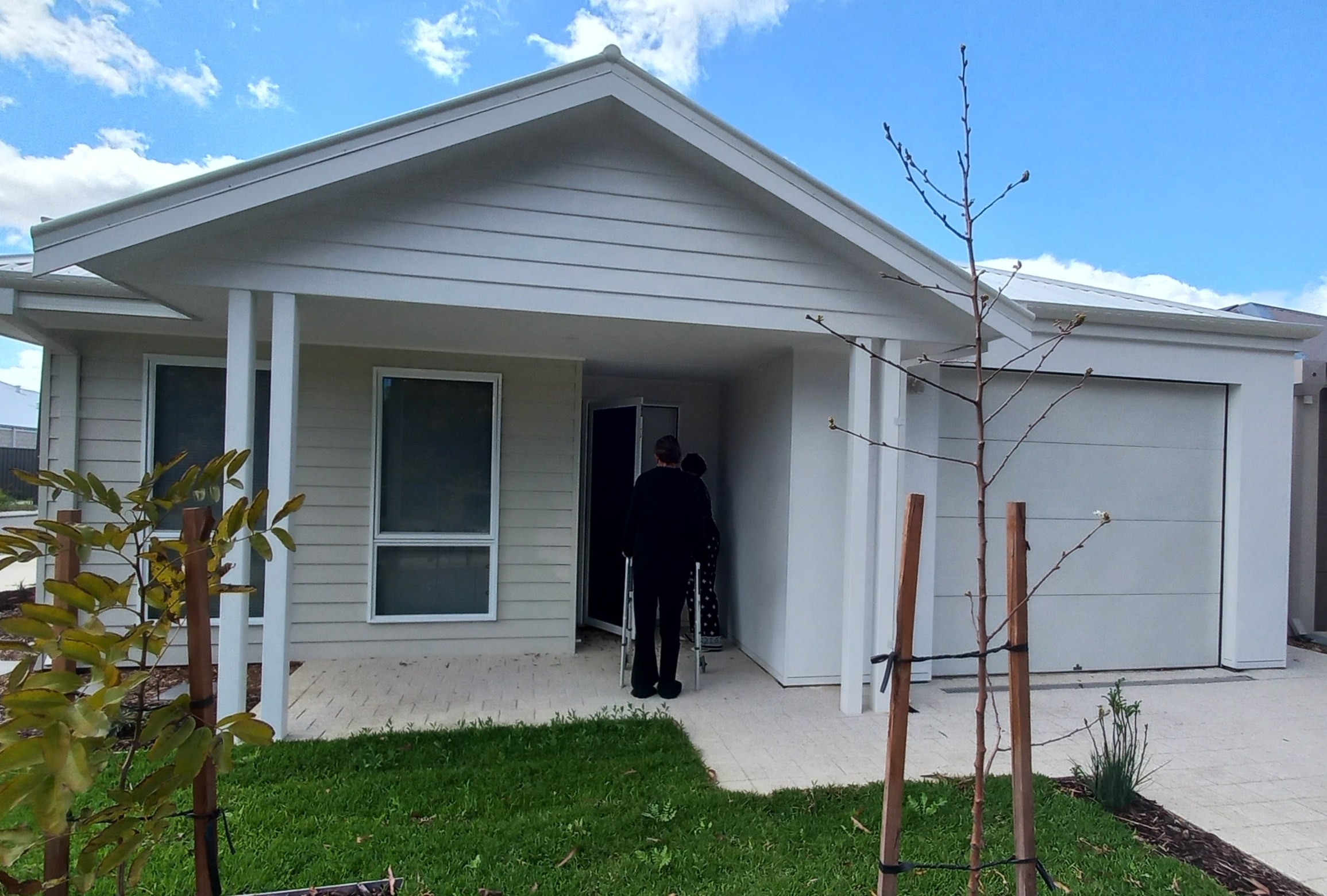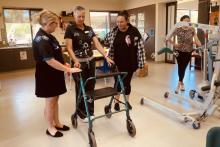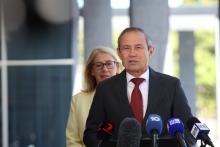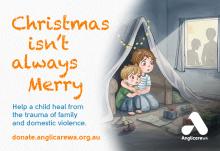A significant portion of homelessness in the community goes unseen and bringing visibility to hidden homelessness could be the key to ending the crisis for good.


A significant portion of homelessness in the community goes unseen and bringing visibility to hidden homelessness could be the key to ending the crisis for good.
World Homeless Day takes place on October 10 each year to refocus attention on the global homelessness crisis and lift communities’ efforts to contribute to solutions.
The internationally recognised day has served as a platform to address homelessness for 25 years and this year, it aligns with Western Australia’s annual Anti-Poverty Week.
Poverty is the leading cause of homelessness and with more than 419,800 people living in poverty in WA, there is a significant group of people at high risk of becoming homeless, if they are not already.
Anglicare WA housing case manager Marie Burman-Wiegele said shedding light on hidden homelessness was vital to make greater change.
“Housing should be a human right, so it’s important to get it out there and contextualise it within particular communities to make it feel relevant for people who may not see homelessness in their community,” Ms Burman-Wiegele said.
“It may not be visible to them, but it’s still there. Hidden homelessness is massive.
“There’s a huge amount of people who are couch surfing, living in friends and family’s backyards in tents or in garages or in the lounge room, and you just wouldn’t know that the people living in that house, some of them may be homeless.”
“On World Homeless Day, we’re reminded that housing is a human right and, in a state as wealthy as WA, we can and must do better.” Anglicare WA housing case manager Marie Burman-Wiegele
Ms Burman-Wiegele has extensive knowledge of homelessness in WA and is actively involved in projects addressing and preventing homelessness.
As a case manager at Anglicare WA, she has a mixed case load meaning she works across a few different housing support programs.
This ranges from offering housing support to clients resolving drug and alcohol issues through Alcohol and Other Drugs (AOD) services, to working to deliver private tenancy supports to clients who are rough sleeping.
“We get to know everybody as a person to find out what they want to work towards, their goals, and then create plans to achieve those goals,” Ms Burman-Wiegele said.
“That can look different for every single client that we work with.
“We’re working with people who have fled family and domestic violence situations, people who have active addiction and mental health issues they’re trying to address, people who are working full time and struggling to manage their latest rent increase.
“We work in a very person-centred, trauma-informed way.”

A client being housed by Anglicare WA housing case manager Marie Burman-Wiegele.
More than 10,000 people are experiencing homelessness on any given night in WA, which can look like rough sleeping, couch surfing, or living in unstable accommodation.
The ongoing lack of affordable housing, stagnant income supports and rising cost-of-living pressures mean it is unlikely this figure will reduce anytime soon.
Anglicare WA has captured homelessness and rough sleeping statistics through data from the By-Names List designed by the WA Alliance to End Homelessness and data from the Australian Bureau of Statistics.
The By-Name List provides real-time data to help build a coordinated community response to homelessness through a collaborative initiative known as Advance to Zero.
In WA, the Mandurah Zero Project and Rockingham including Kwinana Zero Project were designed with this initiative methodology, and Anglicare WA serves as the backbone lead agency.
Ms Burman-Wiegele chairs the Rough Sleeper Coordination Group, which operates as part of the Advance to Zero projects across Mandurah, Rockingham and Kwinana.
“On World Homeless Day, we’re reminded that housing is a human right and, in a state as wealthy as WA, we can and must do better,” Ms Burman-Wiegele said.
“Those 10,000 people living homeless in WA will be people who are couch surfing, sleeping in cars, sleeping in the street, beaches, bush.
“We need bold investment, smart planning and a shared commitment to ending homelessness, not just managing it.”
It can cost an additional $13,000 to $45,000 per year to leave someone homeless than to house them.
Homelessness is a health issue, with 89 per cent of people experiencing homelessness in WA reporting at least one ongoing health issue.
“People who are experiencing homelessness may not initially have mental health issues, but after a period of time rough sleeping on the street, it does take a toll on people’s mental and physical health, particularly in extreme weather,” Ms Burman-Wiegele said.
“Addictions are also likely to increase as a way of medicating the mental health and physical health issues.
“We are highlighting that homelessness is a health issue because we measure tri-morbidity, which is the people we survey who experience all three – mental health conditions, physical health conditions and substance addiction.
“At the moment, 52 per cent of all people that have been surveyed in the vulnerability index survey are experiencing all three so they are tri-morbid.”

Rising cost of living is taking a significant toll on Western Australians, pushing many into poverty and homelessness.
Dental health has been documented as the highest recorded health issue with 60.7 per cent of people in the By-Names List reporting dental issues.
“A lot of people are experiencing dental issues, which obviously makes it painful for them to eat and has impacts on confidence and self-worth when their teeth are bad,” Ms Burman-Wiegele said.
“Accessing good dental care is really difficult, so they’ll often sit with those issues.
“Dental issues can also underlie other life issues like heart conditions and things like that.”
When she presented the health data at the WA Alcohol and Other Drug Conference 2025, Ms Burman-Wiegele was met with considerable interest in the specific health conditions.
“I think there’s private health companies that can see where they can potentially help in this specific space,” she said.
“I definitely think businesses that are interested in being ethical can definitely use that to support the homelessness issues in the community, whether they’re helping in specific spaces or just tweaking their business practices to be able to help in some way.
“That could be by looking at what they can do to employ people that have lived experience, or we have things that particular businesses could look at doing, like property developers looking at more infill in the cities and trying to make some of that affordable housing.”
Prevention is the ultimate solution to ending homelessness, as it is far cheaper than addressing homelessness at crisis stage.
“As a wealthy state, Western Australia is no place for poverty.” Marie Burman-Wiegele
It can cost an additional $13,000 to $45,000 per year to leave someone homeless than to house them, and upfront costs spent on early intervention – such as rent support, tenancy sustainment and mental health care – are more cost-effective.
Ms Burman-Wiegele said tenancy sustainment was part of Anglicare WA’s private tenancy program.
“Sometimes we hear that somebody has been offered a job, but the time it takes for the employer’s human resources department go through all those employment processes is more time that person is not getting paid and really puts stress on being able to pay rent,” Ms Burman-Wiegele said.
“If that could be minimised, if at all possible, so that there’s a more efficient way of getting in the door, starting work and getting paid, then it will actually lead to prevention of tenancy loss.”
Anglicare WA is supporting the No Place for Poverty movement, advocating for the elimination of poverty in WA, which in turn, reduces homelessness rates.
“As a wealthy state, Western Australia is no place for poverty and lobbying government to increase Centrelink benefits, Commonwealth rent assistance and things like that is so important for prevention,” Ms Burman-Wiegele said.
Ending homelessness requires a collaborative community effort and lasting impact can only be achieved by working together to provide resources, support and compassion.











